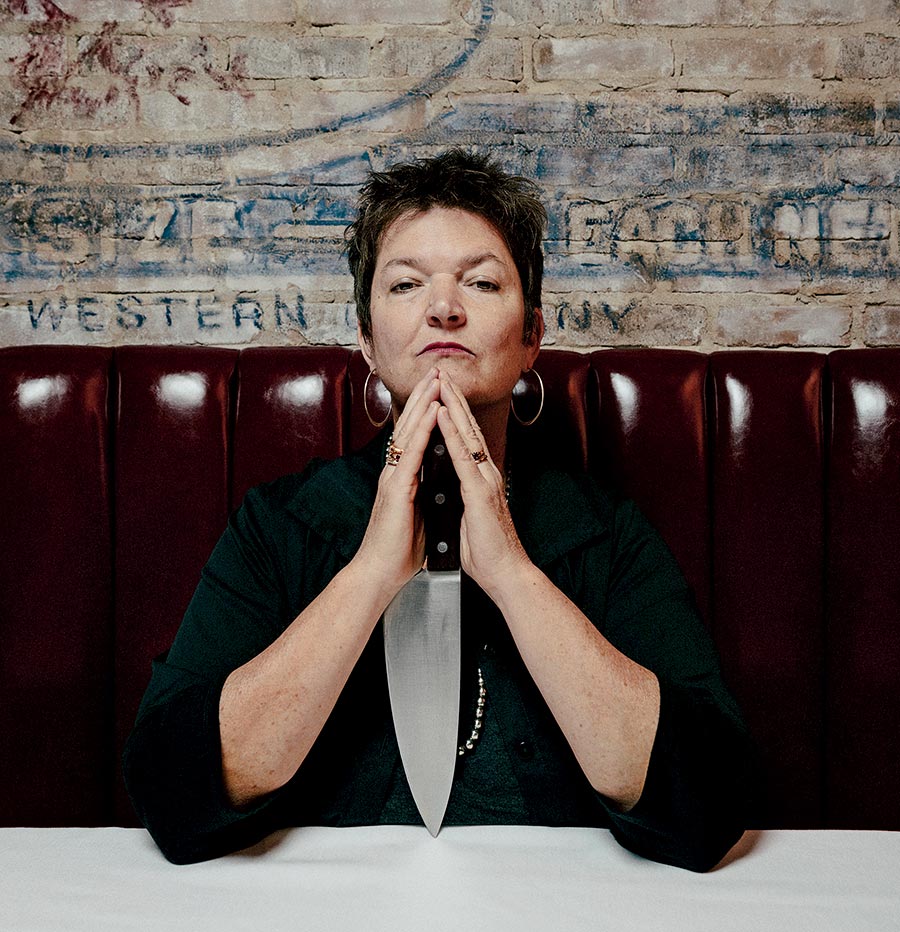When Merriam-Webster selected “gaslighting” as its 2022 word of the year, citing a spike in search traffic, its editors declared that, in the age of misinformation, it was “a word for our time.” While ubiquitous these days, the term actually dates back to 1938, when Gas Light, a psychological thriller set in the Victorian era, premiered onstage in London.
“It’s fascinating to see how a certain type of behavior and relationship is really archetypal,” says Lawrence Grimm, the veteran Chicago actor who plays the manipulative Jack Manningham in a new production, running November 28 to January 4 at Northlight Theatre in Skokie. “Gaslighting is probably timeless.”
Spoiler alert for an 80-plus-year-old story: The play captures one climactic evening in a long game of cat and mouse between a scheming husband and the wealthy wife he’s trying to force into a mental institution. Over the past decade, the word “gaslight” has become synonymous with the act of deliberately manipulating people to such a degree that they no longer trust their own memory. But the title of British playwright Patrick Hamilton’s nail biter also had a period-specific literal meaning, referring to the lighting fixtures that mysteriously dim whenever the protagonist’s husband leaves the house — a phenomenon that clues her in to his deceptions.
“It’s fascinating to see how a certain type of behavior and relationship is really archetypal. Gaslighting is probably timeless.”
A hit on Broadway, where it opened under the name Angel Street in 1941, Gaslight was adapted by Hollywood in 1944 (with its title melded into one word). Ingrid Bergman won an Academy Award for her iconic performance, while Angela Lansbury, making her screen debut at age 17, was nominated for playing a cunning maid.
Jessica Thebus, who directs the Northlight version, recalls watching a revival screening as a teenager at the Varsity Theater, Evanston’s long-defunct movie palace: “My best friend and I loved it, and we would quote from it.” Her production’s design is influenced by the film’s brooding film-noir look — an opulent set that’s “fraying at the edges,” Thebus says. “Even though it’s not really a ghost story, it’s not not a ghost story. It has to feel like the house is alive.”
Northlight’s version is set in 1880s New York City, not in London — one of the updates in this 2023 script by Steven Dietz. A widely produced playwright who lives in Austin and Seattle, Dietz has penned more than 40 works: original mysteries such as How a Boy Falls, which made its world premiere at Northlight in 2020, and stage adaptations of stories by the likes of Agatha Christie, Arthur Conan Doyle, and Bram Stoker. “He has a gift for refreshing classic thrillers,” says artistic director BJ Jones.

While Dietz doesn’t make major changes to the plot, the women in his version show more individual agency and solidarity with each other. Recent Seattle transplant Cheyenne Casebier, who understudied for Helen Hunt earlier this year in the Goodman’s Betrayal, makes her Northlight debut as Bella Manningham, the target of Jack’s gaslighting. Bella is no ingénue, but, as Casebier notes, circumstances have left her “emotionally porous” and vulnerable to a dangerous dynamic. “I don’t think that it’s an unusual place for people, mostly women, to find themselves in,” she says.
In Thebus’s view, the play speaks to the modern experience of overcoming manipulation on many levels, from political rhetoric and deceptive advertising to calculated maneuvering by a romantic partner or family member. “Extricating yourself is harder than one would hope,” she says, “and I think that’s true nationally, it’s true societally, and also true personally.”
Despite the dark psychological world that Gaslight inhabits, “there are moments where everybody has a choice,” Thebus continues. Even for a character as bewildered as Bella, deep down, she still knows how to trust her instincts — and therein lies a glimmer of hope: “If you can keep listening to that voice, that’s so often the voice that actually does get us out the door.”



